2016 ACISTE Annual Conference
2016 Speakers and Presenters
Pre-Conference Workshop
Life Coaching Certification Training with Rosie Kuhn, PhD
October 18-20, 2016
This two and a half day coach training intensive is dedicated to supporting and empowering experiencers to explore and investigate who they are with their STE and beyond their STE. Oriented toward developing and enhancing coaching skills and tools, and expanding the bandwidth of awareness, in order to support individuals on the edge of their human and their spiritual transcendent process, mental health professionals, spiritual guides and others can utilize these specific skills and tools within their preferred professional and lay practices. Those attending will strengthen their capacity to work outside a fear-based paradigm, resourcing a universal source more effortlessly, and empower experiencers to integrate and appreciate the lived experience of their spiritual journey called life.Presenter Bio
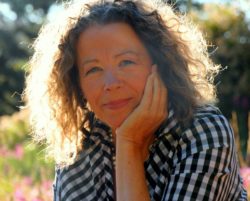 Dr. Rosie Kuhn is the creator of the Transformational Coaching Training Program, taught at Sofia University, Palo Alto, California, since 2001. She is a life and executive coach, and the author of many books, including, You Know You are Transforming When…, and Self-Empowerment 101, which is a culmination of her work as a life coach, marriage and family therapist, spiritual guide and trainer of Transformational Coaching. She has worked in the field of human development for over 30 years, including addictions and recovery, family violence and spiritual direction. She’s been a speaker at the New Living Expo in San Francisco for three years, and has been a guest on many radio shows around the country. She works internationally as a speaker, trainer and executive coach in Moscow, London and Tel Aviv.
Dr. Rosie Kuhn is the creator of the Transformational Coaching Training Program, taught at Sofia University, Palo Alto, California, since 2001. She is a life and executive coach, and the author of many books, including, You Know You are Transforming When…, and Self-Empowerment 101, which is a culmination of her work as a life coach, marriage and family therapist, spiritual guide and trainer of Transformational Coaching. She has worked in the field of human development for over 30 years, including addictions and recovery, family violence and spiritual direction. She’s been a speaker at the New Living Expo in San Francisco for three years, and has been a guest on many radio shows around the country. She works internationally as a speaker, trainer and executive coach in Moscow, London and Tel Aviv.Keynote Presentation: David Lukoff, PhD
Spiritual Competence and Spiritual Crises
Abstract
New research has been appearing on Spiritual Competency in mainstream peer reviewed journals. This work recognizes spirituality as a resource for wellness and recovery and the value of spiritually oriented interventions such as mindfulness practices, along with recognition of the importance of distinguishing psychopathology from potentially spiritually transformative experiences. Embedding the recognition of STEs within a broader context of cultural sensitivity and spiritual competency has the potential to expand awareness of the need to provide more spiritually-inclusive care across the spectrum to clients. How can therapists be prepared to develop a more compassionate and skillful place within themselves to provide spiritually competent care?Presenter Bio
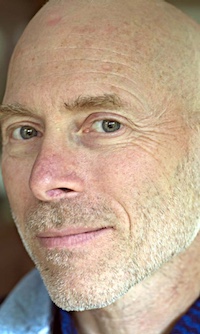 Dr. David Lukoff is a Professor of Psychology at the Institute of Transpersonal Psychology, co-president of the Association for Transpersonal Psychology, and a licensed psychologist in California. He is author of 80 articles and chapters on spiritual issues and mental health, co-author of the DSM-IV category Religious or Spiritual Problem, and an active workshop presenter internationally providing training for psychologists in spiritual competency, loss and grief, death and illness, spiritual problems and emergencies.
Dr. David Lukoff is a Professor of Psychology at the Institute of Transpersonal Psychology, co-president of the Association for Transpersonal Psychology, and a licensed psychologist in California. He is author of 80 articles and chapters on spiritual issues and mental health, co-author of the DSM-IV category Religious or Spiritual Problem, and an active workshop presenter internationally providing training for psychologists in spiritual competency, loss and grief, death and illness, spiritual problems and emergencies.Main Session: Janet Elizabeth Colli, PhD
Am I Crazy or Spiritually Transforming? Beyond the Differentiation of Psychiatric and Spiritual Experiences
Abstract
Spiritually transformative experiences (STEs) may sometimes present with the symptomatology of psychiatric disorders. What if transformational crisis happens within the context of a psychiatric hospitalization? Is there a coherent approach that finds no absolute delineation between spiritual emergence and what we sometimes diagnose as a psychiatric disorder? This presentation offers preliminary answers through case material, and a model for helping those who present with such experiences. A historical perspective begins with the presumed differentiation between authentic spiritual experience and psychiatric illness. A more functional approach takes into account the experiencer’s perspective, their communication and meta-communication skills, as well as their epigenetics. For if STEs are a biologically-based portal to transformation of the personality, we cannot neglect the role of human physiology. As the physiological underpinnings of psychological processes are more readily understood, our perspective — on expanded states of consciousness and psychiatric disorders — is transforming. An approach to spiritual emergence will be introduced that includes: 1) Psycho-spiritual support; 2) Physiological support; and 3) Community support. Just as it takes a village to raise a child, it may take a team approach to facilitate STEs.Presenter Bio
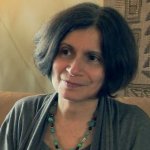 Janet Elizabeth Colli, Ph.D. is a psychotherapist in the Pacific Northwest specializing in spiritual awakening. With expertise in both Clinical and Transpersonal Psychology, she bridges psychology with the extraordinary, and the mystical. Professionally, she has been in private practice for over 20 years. She facilitates Spiritual Emergence Seattle — a consultation service integrating psycho-spiritual, physiological & community support. Her most recent book, The Dark Face of Heaven: True Stories of Transcendence Through Trauma, is a compelling account of spiritual awakening and non-ordinary experience revealed during trauma therapy. Author of the highly acclaimed Sacred Encounters: Spiritual Awakenings During Close Encounters, Janet lives on Whidbey Island and swims with wild dolphins in Hawaii.
Janet Elizabeth Colli, Ph.D. is a psychotherapist in the Pacific Northwest specializing in spiritual awakening. With expertise in both Clinical and Transpersonal Psychology, she bridges psychology with the extraordinary, and the mystical. Professionally, she has been in private practice for over 20 years. She facilitates Spiritual Emergence Seattle — a consultation service integrating psycho-spiritual, physiological & community support. Her most recent book, The Dark Face of Heaven: True Stories of Transcendence Through Trauma, is a compelling account of spiritual awakening and non-ordinary experience revealed during trauma therapy. Author of the highly acclaimed Sacred Encounters: Spiritual Awakenings During Close Encounters, Janet lives on Whidbey Island and swims with wild dolphins in Hawaii.Main Session: Bruce Davis, PhD
The Challenge of Depression After A Spiritual Awakening
Abstract
How does one live a full and meaningful life after experiencing a spiritual awakening? In modern culture and life we are challenged to integrate how human we are and how divine we are. Our failure to accept and cherish our very human and divine self can lead to depression Awakening experiences can leave us vulnerable and overly heart full in our very mental and judgmental world. Bruce will share the cornerstones of a life opened to a vastness of spiritual intimacy while living in the world of seemingly endless separateness and competition. Instead of being overwhelmed or constantly trying to manage life, our spiritual awakening can be embraced and expanded, providing a path of simple joy and much purpose and meaning. Bruce shares many valuable tools to lessen our mental weights while opening the gifts of our spiritual heart.Presenter Bio
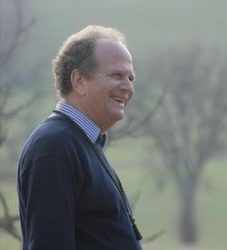 Bruce Davis, PhD, has had experiences of spiritual awakening since 1974 when he began a four year apprenticeship with an Eskimo Shaman who at will entered his dreams and took him of spiritual journeys. Since that time he has lived with psychic healers in the Philippines, teachers and communities in Assisi Italy, Puttaparti India, Bali exploring and facing the many challenges of spiritual awakening in modern culture and life. Bruce is the author of several books including The Magical Child within You, Monastery without Walls, The Calling of Joy, and has been leading retreats worldwide since 1983. He has a gift for supporting people to develop and enjoy living in the sanctuary of the heart. Along with his wife Ruth Davis, Bruce created the Assisi Retreat Hermitage in Assisi, Italy which received worldwide acclaim as one of the top ten meditation retreats in the world by CNN. Today he is retreat leader at www.silentstay.com, levitra site - https://pro-mark-pharmacies.com/use-of-cheap-levitra/ near Napa, California offering retreats of heart full silence to explore and expand experiences of spiritual awakening.
Bruce Davis, PhD, has had experiences of spiritual awakening since 1974 when he began a four year apprenticeship with an Eskimo Shaman who at will entered his dreams and took him of spiritual journeys. Since that time he has lived with psychic healers in the Philippines, teachers and communities in Assisi Italy, Puttaparti India, Bali exploring and facing the many challenges of spiritual awakening in modern culture and life. Bruce is the author of several books including The Magical Child within You, Monastery without Walls, The Calling of Joy, and has been leading retreats worldwide since 1983. He has a gift for supporting people to develop and enjoy living in the sanctuary of the heart. Along with his wife Ruth Davis, Bruce created the Assisi Retreat Hermitage in Assisi, Italy which received worldwide acclaim as one of the top ten meditation retreats in the world by CNN. Today he is retreat leader at www.silentstay.com, levitra site - https://pro-mark-pharmacies.com/use-of-cheap-levitra/ near Napa, California offering retreats of heart full silence to explore and expand experiences of spiritual awakening.Main Session: Stafford Betty, PhD
The Growing Evidence for “Demonic Possession”: What Should Psychiatry’s Response Be?
Abstract
A new breed of therapist is healing the mentally ill not with talk and drug therapy, but by releasing troublesome or malevolent spirits—most of them human in a former physical life--who have attached themselves to their victims. I am not talking about religious healers like the Christian “deliverance minister” Francis McNutt, but secular healers, a few of them licensed psychiatrists or psychologists, who have discovered, often by accident, that this new therapy works better than what they learned in medical or graduate school. They tell us that too often drug therapy only masks symptoms, and talk therapy reaches only as deep as the patient’s conscious mind. But “spirit release” usually heals, often permanently. Not only does it heal the client; it heals the attached (or “possessing”) spirit. Clinicians, therapists, counselors, and other helping professionals need to jump into the 21st century and add the tools needed to fight all kinds of mental illness. The materialist dogmas that deny the existence of troubled earthbound spirits (deceased human beings) need to be challenged, and psychiatry in particular needs to stop medicating supposedly sick brains while misdiagnosing the real problem.Presenter Bio
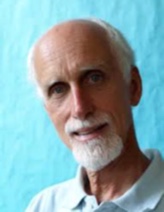 Stafford Betty earned his Ph.D. from Fordham University, where he specialized in Asian religious thought and Sanskrit. Today he is a professor of world religions at California State University, Bakersfield, and has evolved as one of the world’s most acclaimed experts on the afterlife. In 2011 he published The Afterlife Unveiled, which has emerged as a classic in the field. A more recent publication, Heaven and Hell Unveiled (2014), is an in-depth description of spirit life, with an emphasis on how spirits progress from lower to higher planes. This past June (2016) he published When Did You Ever Become Less by Dying? Evidence of the Afterlife from Philosophy, Religion, and Psychical Research. Betty’s article-length publications include a much longer version of today’s presentation, which averages over ten hits per day on academia.edu. He has traveled to India four times, on one occasion to do research for his latest novel, The Severed Breast (2016), which is set in India. He blogs for The Huffington Post in an attempt to reach non-specialists.
Stafford Betty earned his Ph.D. from Fordham University, where he specialized in Asian religious thought and Sanskrit. Today he is a professor of world religions at California State University, Bakersfield, and has evolved as one of the world’s most acclaimed experts on the afterlife. In 2011 he published The Afterlife Unveiled, which has emerged as a classic in the field. A more recent publication, Heaven and Hell Unveiled (2014), is an in-depth description of spirit life, with an emphasis on how spirits progress from lower to higher planes. This past June (2016) he published When Did You Ever Become Less by Dying? Evidence of the Afterlife from Philosophy, Religion, and Psychical Research. Betty’s article-length publications include a much longer version of today’s presentation, which averages over ten hits per day on academia.edu. He has traveled to India four times, on one occasion to do research for his latest novel, The Severed Breast (2016), which is set in India. He blogs for The Huffington Post in an attempt to reach non-specialists.
Persons I Especially Admire:
- Gandhi
- Mother Teresa
- Seneca
- Oliver Lodge
- George Eliot
- Tolstoy
- Huston Smith
- John Hick
- William James
- Mozart
- Emerson
- Wordsworth
- Dostoevsky
- Rāmānuja
- Schübert
- John Henry Newman
Main Academic Interests:
- Philosophy of religion
- Asian religion and philosophy
- Paranormal studies
- Spirituality and mysticism
- Religion and philosophy in fiction
- Mind-body problem
- Religion and science
Main Session: Janice Holden, EdD
Conceptualization and Treatment Planning for Clients With Potentially Spiritually Transformative Experiences: An Integral Approach
Abstract
In this presentation, Jan will introduce some key concepts of Ken Wilber’s Integral Theory. Using a case example, she will illustrate how she uses Integral theory to conceptualize and plan treatment with clients who present for counseling with potentially spiritually transformative experiences. She will end with an ordered list of resources for audience members seeking to develop their understanding of Integral Theory and its application to counseling and psychotherapy.Presenter Bio
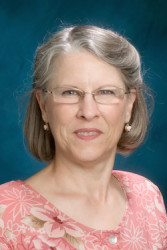 Since completing her EdD in 1988, Janice Miner Holden has been a member of the University of North Texas Counseling Program faculty where she is currently professor of Counseling and chair of the Department of Counseling and Higher Education. Beginning with her doctoral dissertation, Jan’s primary research focus has been counseling implications of near-death and other transpersonal experiences—those that transcend the usual personal limits of space, time, and/or identity. With over 40 refereed journal publications and 100 national and international presentations, she also lead-edited the 2009 Handbook of Near-Death Experiences, lead-authored the 2015 Near-Death Experiences While Drowning, and is co-editor of the forthcoming Connecting Soul, Spirit, Mind, and Body: A Collection of Spiritual and Religious Perspectives and Practices in Counseling. Dr. Holden served six years on the board of directors of the International Association for Near-Death Studies (IANDS), three as President; she serves currently as editor of IANDS’s peer-reviewed Journal of Near-Death Studies. She is a Texas LPC-Supervisor and LMFT, a National Certified Counselor, and an American Center for the Integration of Spiritually Transformative Experiences (ACISTE) Certified Mental Health Professional. For her career-long research on and advocacy for people who have had transpersonal experiences, Jan was awarded the ASERVIC 2013 Research Award and the American Counseling Association 2015 Gilbert and Kathleen Wrenn Award for a Humanitarian and Caring Person.
Since completing her EdD in 1988, Janice Miner Holden has been a member of the University of North Texas Counseling Program faculty where she is currently professor of Counseling and chair of the Department of Counseling and Higher Education. Beginning with her doctoral dissertation, Jan’s primary research focus has been counseling implications of near-death and other transpersonal experiences—those that transcend the usual personal limits of space, time, and/or identity. With over 40 refereed journal publications and 100 national and international presentations, she also lead-edited the 2009 Handbook of Near-Death Experiences, lead-authored the 2015 Near-Death Experiences While Drowning, and is co-editor of the forthcoming Connecting Soul, Spirit, Mind, and Body: A Collection of Spiritual and Religious Perspectives and Practices in Counseling. Dr. Holden served six years on the board of directors of the International Association for Near-Death Studies (IANDS), three as President; she serves currently as editor of IANDS’s peer-reviewed Journal of Near-Death Studies. She is a Texas LPC-Supervisor and LMFT, a National Certified Counselor, and an American Center for the Integration of Spiritually Transformative Experiences (ACISTE) Certified Mental Health Professional. For her career-long research on and advocacy for people who have had transpersonal experiences, Jan was awarded the ASERVIC 2013 Research Award and the American Counseling Association 2015 Gilbert and Kathleen Wrenn Award for a Humanitarian and Caring Person.2016 STE Experiencer Panel
This year our experiencer panel will include:
- Elizabeth Bramlett, sharing about Integration
- Sandy Briggs, sharing the after-effects of her NDE
- Marilyn Schmidt, sharing the phases of her experience and reentry into the physical realm
Main Session: Ron Jones, MA PhD
Spiritual Identity Emerging Through Dreams in the Clients of a Spiritual Counselor
Abstract
People having a spiritually transforming experience perceive mental health professionals as the least helpful group of helpers to them. We counselors and therapists need to respond to this and learn more about how we can be helpful to them. The presenter will present cases from his work as a Spiritual Counselor that demonstrate the ongoing process of change of identity resulting from spiritually transforming experiences (STEs). Experiencing some aspect of the divine through an STE can really shake up our world-view and identity. The STE can lead us to feel weird or even crazy or alternatively can inflate us with a feeling of specialness, either of which can lead us in destructive directions. On the other hand, our self-image can be improved if we can learn to feel worthy of experiencing divine love. Clients’ work is presented as they went through stages of questioning their STEs, then beginning to trust them, then beginning to incorporate the expanded meaning of them for their lives, and in some cases even allowing themselves to identify with those higher states of the light of consciousness as they did in the STE. Dreams are presented that demonstrate the changes in their identity as they integrated their experiences.Presenter Bio
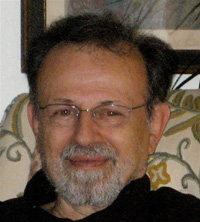 Ron Jones, Ph.D. has been a Spiritual Counselor and teacher in the San Jose, California area for many years. He studied dreams in a Jungian framework and followed a number of meditation paths, finally choosing a yoga meditation movement with which he has been involved for the last 40 years. He has helped a number of people onto their spiritual journeys and supported others in overcoming hurdles to their next spiritual step. He developed and directed a number of counseling services, including the counseling center at Sophia University (Institute of Transpersonal Psychology) in Palo Alto, California as well as a yoga meditation center in the San Jose area. He has taught numerous meditation classes and workshops in the area of spiritual growth and is an adviser to ACISTE, a national organization serving those who have had spiritually transforming experiences. He is ordained to counsel and teach seekers of all paths through the "Center of Light of AIWP" that he oversees in San Jose. He can be reached at: rjones.1@centeroflightwithin.com or for more information, visit his website at http://www.centeroflightwithin.com
Ron Jones, Ph.D. has been a Spiritual Counselor and teacher in the San Jose, California area for many years. He studied dreams in a Jungian framework and followed a number of meditation paths, finally choosing a yoga meditation movement with which he has been involved for the last 40 years. He has helped a number of people onto their spiritual journeys and supported others in overcoming hurdles to their next spiritual step. He developed and directed a number of counseling services, including the counseling center at Sophia University (Institute of Transpersonal Psychology) in Palo Alto, California as well as a yoga meditation center in the San Jose area. He has taught numerous meditation classes and workshops in the area of spiritual growth and is an adviser to ACISTE, a national organization serving those who have had spiritually transforming experiences. He is ordained to counsel and teach seekers of all paths through the "Center of Light of AIWP" that he oversees in San Jose. He can be reached at: rjones.1@centeroflightwithin.com or for more information, visit his website at http://www.centeroflightwithin.comMain Session: Bonnie Greenwell, PhD, LPC
Identifying and Supporting Spiritual Transformation
Abstract
Both spiritual and medical communities need a new paradigm for understanding and supporting STEs and the awakenings of energy and consciousness that accompany them. My presentation, based on doctoral research, followed by 30 years of consultations with over 2000 people in a spiritually emergent process, will focus on four areas: 1. Seven Categories of phenomena that typically arise during and after an initial spiritual awakening, 2. Historical evidence for identifying the phenomena of energy arising and consciousness shifting into new perspectives as either within a normative range for spiritual seekers or as spontaneous transformative events, 3. The most common emotional and physical challenges that arise within this process, and 4. Seven essential steps that support a spiritually transformative experience.Presenter Bio
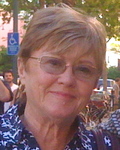 Bonnie Greenwell Ph.D. is a transpersonal therapist and a non-dual teacher in the lineage of Adyashanti. A graduate of ITP, and previously director of the Transpersonal Counseling Center at ITP, she wrote “Energies of Transformation: A Guide to the Kundalini Process”, following her personal experiences and her doctoral research; published in 2015 “The Kundalini Guide” and “The Awakening Guide”, based on 30 years work as a therapist and spiritual teacher; contributed to the anthology “Kundalini Rising” ; and was the editor of Adyashanti’s book “Emptiness Dancing”. She has lectured and trained therapists internationally to work with spiritual emergence and kundalini awakening, and currently offers consultations, webinars and retreats through Shanti River Center in Ashland, Oregon, focused on supporting the spiritual awakening process. She has two websites: www.kundaliniguide.com and www.awakeningguide.com and an Awakened Living blog at www.shantiriver.wordpress.com.
Bonnie Greenwell Ph.D. is a transpersonal therapist and a non-dual teacher in the lineage of Adyashanti. A graduate of ITP, and previously director of the Transpersonal Counseling Center at ITP, she wrote “Energies of Transformation: A Guide to the Kundalini Process”, following her personal experiences and her doctoral research; published in 2015 “The Kundalini Guide” and “The Awakening Guide”, based on 30 years work as a therapist and spiritual teacher; contributed to the anthology “Kundalini Rising” ; and was the editor of Adyashanti’s book “Emptiness Dancing”. She has lectured and trained therapists internationally to work with spiritual emergence and kundalini awakening, and currently offers consultations, webinars and retreats through Shanti River Center in Ashland, Oregon, focused on supporting the spiritual awakening process. She has two websites: www.kundaliniguide.com and www.awakeningguide.com and an Awakened Living blog at www.shantiriver.wordpress.com.Main Session: Laurie Levin, Psy.D
Experiential Reenactment of the Moonview Model of the Power of Group Interaction
Abstract
Treating the inherent complexity and uniqueness of each individual dealing with his or her singular spiritually transformative experience requires the coming together of a collaborative and group dynamic to provide aggregated wisdom. We will demonstrate the unexpected resources triggered by spontaneous interaction to the congregation of different voices adapting in the moment to new client revelations and other discipline perspectives. Come witness a string of unrehearsed Eureka moments unveiling exquisite correlations and non-obvious solutions!Presenter Bio
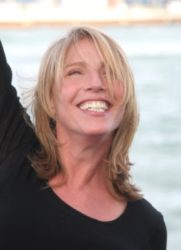 In 1977 Dr. Levin launched her career at what was to become one of Hollywood's premier talent agencies, Creative Artists Agency. There she was responsible for signing such celebrities as Michael Keaton, Madonna, Michael Jackson and others. She left CAA in 1985 to begin her own film production company.
After almost 20 years in show business she made the bold move to follow her true calling as a psychologist. Her transforming breakthrough came as her mother was dying of cancer. With a recognition that death is simply a passage way to the next life, she helped her mother find peace and comfort in her transition. Profoundly affected by this experience, Dr. Levin was inspired to return to school to obtain her doctorate with the intention to explore new frontiers of health, wellness and spirituality.
Remaining true to that pledge, Dr. Levin founded Moonview Sanctuary, a highly respected treatment and research institute, in 2004. Each Moonview program was created through the careful integration of modern medicine, psychology and neuroscience, together with ancient knowledge and healing spiritual practices from around the world. Drawing on her belief in a collaborative team approach while focusing on the uniqueness of each individual, she brought together over 65 practitioners to share their knowledge and initiate new modalities for the customized care of each client.
As an extension of the Moonview Model, Dr. Levin and her husband, Jerry Levin, co-founded The Levin Center for Parkinson's Transformational Health.
In 2009, HCI published her award winning memoir, God, The Universe, and Where I Fit In, illustrating her spiritual journey of transformation through intuition. On November 17, 2015, Dr. Levin's newest book, Life In Life, was published by BenBella Books. Life In Life is designed as a personal meditation journal providing guidance for living longer, strengthening relationships and creating a healthier life. Dr. Levin has appeared as an expert on The Today Show, as well as other television programs.
In 1977 Dr. Levin launched her career at what was to become one of Hollywood's premier talent agencies, Creative Artists Agency. There she was responsible for signing such celebrities as Michael Keaton, Madonna, Michael Jackson and others. She left CAA in 1985 to begin her own film production company.
After almost 20 years in show business she made the bold move to follow her true calling as a psychologist. Her transforming breakthrough came as her mother was dying of cancer. With a recognition that death is simply a passage way to the next life, she helped her mother find peace and comfort in her transition. Profoundly affected by this experience, Dr. Levin was inspired to return to school to obtain her doctorate with the intention to explore new frontiers of health, wellness and spirituality.
Remaining true to that pledge, Dr. Levin founded Moonview Sanctuary, a highly respected treatment and research institute, in 2004. Each Moonview program was created through the careful integration of modern medicine, psychology and neuroscience, together with ancient knowledge and healing spiritual practices from around the world. Drawing on her belief in a collaborative team approach while focusing on the uniqueness of each individual, she brought together over 65 practitioners to share their knowledge and initiate new modalities for the customized care of each client.
As an extension of the Moonview Model, Dr. Levin and her husband, Jerry Levin, co-founded The Levin Center for Parkinson's Transformational Health.
In 2009, HCI published her award winning memoir, God, The Universe, and Where I Fit In, illustrating her spiritual journey of transformation through intuition. On November 17, 2015, Dr. Levin's newest book, Life In Life, was published by BenBella Books. Life In Life is designed as a personal meditation journal providing guidance for living longer, strengthening relationships and creating a healthier life. Dr. Levin has appeared as an expert on The Today Show, as well as other television programs.Breakout Session: Marie Grace Brook PhD(c), LCSW, ACMHP, ACSGC
Design of the Integration of Spiritually Transformative Experiences Inventory Survey (ISTEI)
Abstract
This presentation will describe in detail the design of the ISTEI Survey (Integration of Spiritually Transformative Experiences Inventory Survey) presently online and collecting data for the research study currently underway. Until now, clinical recommendations for interventions and self-help practices have been purported by individual clinicians who base their knowledge upon client interface within their own private practices. To date, no comprehensive evidenced-based research has been done. The ISTEI is an answer to this need. It comprises my doctoral research and will produce a study to discover which practices, habits, and behaviors assist people in successfully integrating spiritually transformative experiences (STEs). Through creation and distribution of the Integration of Spiritually Transformative Experiences Inventory (ISTEI), I seek to explore validation of accepted wisdom among authorities in the field of clinical recommendations to assist experiencers. To create the survey, several aspects had to be addressed, which take on the challenge of this growing diverse and continually refined field of inquiry: (1) creation of appropriate definition of STE; (2) examination of parameters of integration; (3) additional instruments used for screening level of integration; (4) referencing authorities in the field to create the inventory; (5) organization of the 84-item inventory; and (6) generalized summary of data collection to date.Presenter Bio
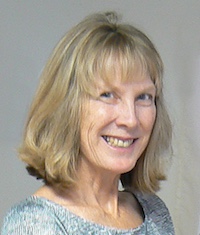 Marie Grace Brook, PhD(c), LCSW, ACMHP, ACSGC holds a BA from Duke University, MSW from Denver University, Masters Certificate in Spiritual Direction from Fordham University, and is presently completing dissertation research at Sofia University (formerly Institute of Transpersonal Psychology. She has worked as a mountain guide, healing artist (Rolfer and craniosacral therapist), hospice social worker, graduate school adjunct teacher, and researcher. Her papers have been published in NASW’s Children & Schools, SDI’s Presence, and ITA’s International Journal of Transpersonal Studies. In 2015 she presented research studies at the American Psychological Association Div. 36 Mid-Year Conference in the USA, at the International Congress for Complementary and Integrative Medicine Research in South Korea, at the European Transpersonal Assoc Conference in Italy, at the International Transpersonal Conference for Education and Humanities in Indonesia, and at the International Transpersonal Psychology Conference in Brazil. Her current research inquires into methods of integrating spiritually transformative experiences through an internet survey and through cross-cultural interviewing of psychologists, spiritual teachers and indigenous healers in Indonesia. Marie lives in Santa Cruz and hosts Jasmine Garden Oasis Retreat House with her husband, Peter. mariegracebrook.com.
Marie Grace Brook, PhD(c), LCSW, ACMHP, ACSGC holds a BA from Duke University, MSW from Denver University, Masters Certificate in Spiritual Direction from Fordham University, and is presently completing dissertation research at Sofia University (formerly Institute of Transpersonal Psychology. She has worked as a mountain guide, healing artist (Rolfer and craniosacral therapist), hospice social worker, graduate school adjunct teacher, and researcher. Her papers have been published in NASW’s Children & Schools, SDI’s Presence, and ITA’s International Journal of Transpersonal Studies. In 2015 she presented research studies at the American Psychological Association Div. 36 Mid-Year Conference in the USA, at the International Congress for Complementary and Integrative Medicine Research in South Korea, at the European Transpersonal Assoc Conference in Italy, at the International Transpersonal Conference for Education and Humanities in Indonesia, and at the International Transpersonal Psychology Conference in Brazil. Her current research inquires into methods of integrating spiritually transformative experiences through an internet survey and through cross-cultural interviewing of psychologists, spiritual teachers and indigenous healers in Indonesia. Marie lives in Santa Cruz and hosts Jasmine Garden Oasis Retreat House with her husband, Peter. mariegracebrook.com.Breakout Session: Brian Sackett
A Taste of a Near-Death Experience
Abstract
How do you talk about experiences that cannot be put into words? This presentation includes attempts to describe the ineffable – a near-death experience as a three year old, a twenty-one year old catapulted out of time/space during a Swami Muktananda and Baba Ram Dass presentation and a shared-death experience. Because these are so difficult to put into words, Brian developed a guided meditation to provide the participants a spiritually transformative experience that includes major elements of a near-death experience. There will be a question and answer section at the end of the meditation to address clinical concerns, including working with spiritual emergence clients.Presenter Bio
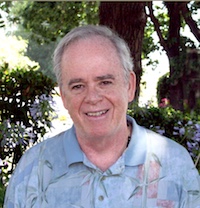 Brian Sackett, Ph.D. is a clinical psychologist in private practice in San Jose, assisting individual clients and couples dealing with trauma and abuse, depression and anxiety, spiritual emergence and relationship issues. He has a B.S. in mathematics from Stanford University, and a Masters of Counseling Psychology and Ph.D. in Transpersonal Psychology from the Institute of Transpersonal Psychology (ITP). He is a certified EMDR therapist and has extensive training in sensorimotor therapy. His practice incorporates mindfulness and somatic-based practices.
Having spent twenty-five years working in high tech, Brian has a practical understanding of the pressures and coping methods of professionals in that environment.
In addition to working with clients dealing with major illnesses, Brian has personal experience from supporting his wife Kristi, a marriage and family therapist, who lived with nineteen years of not-in-remission thyroid cancer before passing in 2012. This experience has proven useful to clients.
Brian Sackett, Ph.D. is a clinical psychologist in private practice in San Jose, assisting individual clients and couples dealing with trauma and abuse, depression and anxiety, spiritual emergence and relationship issues. He has a B.S. in mathematics from Stanford University, and a Masters of Counseling Psychology and Ph.D. in Transpersonal Psychology from the Institute of Transpersonal Psychology (ITP). He is a certified EMDR therapist and has extensive training in sensorimotor therapy. His practice incorporates mindfulness and somatic-based practices.
Having spent twenty-five years working in high tech, Brian has a practical understanding of the pressures and coping methods of professionals in that environment.
In addition to working with clients dealing with major illnesses, Brian has personal experience from supporting his wife Kristi, a marriage and family therapist, who lived with nineteen years of not-in-remission thyroid cancer before passing in 2012. This experience has proven useful to clients.Breakout Session: Katrina Burgos
A Presentation of Research Findings on the Experience of Spiritual Resistance and Considerations for Clinical Application
Abstract
As human service professionals drawn to work with individuals on the path of spiritual emergence, we are entrusted with the responsibility of establishing a standard of care that is respectful of the delicate nature of the Divine process while responsive to the unique human needs that arise in conjunction with the shifts taking place. Given the unique variables and qualities of each person’s process and the broad range of spiritually transformative experiences (STEs) with which our clients present, it is invaluable that we seek to contextualize and validate such experiences while maintaining sufficient space for the individual processes to unfold. Though we often focus on the dramatic transformations that occur when discussing STEs, the processes by which people come through such transformative events may be in nonlinear, even seemingly stunted ways. Based on interviews with 18 participants in my dissertation research, I would like to draw attention to the experience of spiritual resistance and its apparent role in the process of spiritual development. Defined as the result of a convergence of individual and cultural factors that contribute to conscious and unconscious withdrawal from or avoidance of the process of spiritual emergence, findings indicate that spiritual resistance can take various forms. Reported examples of spiritual resistance range from challenges around maintaining a spiritual practice, to busying oneself with distracting activities and relationships, to suppressing one’s own spiritual agency and personal power. The resistance to the process of spiritual emergence, motivated primarily by culture and fear, according to my findings, appears to be part of the process itself. In this talk I will share some moving excerpts from my interviewees to help illustrate the emotionally nuanced personal experiences of spiritual resistance. Through a presentation of the research findings and considerations for clinical applications, I hope to stimulate exploratory dialogue as to how we as helping professionals might ethically serve our clients by bringing to light the protective functions of spiritual resistance, while gently holding space for the clients’ natural process of spiritual emergence.Presenter Bio
 Katrina Burgos, LCSW, ACMHP is a PhD candidate at Sofia University and a licensed clinical social worker with a private psychotherapy practice in New York City and the San Francisco Bay area. Her own ineffable experiences have informed her desire to research the phenomenon and support those in the integration process as we collectively catalyze development our highest potential.
Katrina Burgos, LCSW, ACMHP is a PhD candidate at Sofia University and a licensed clinical social worker with a private psychotherapy practice in New York City and the San Francisco Bay area. Her own ineffable experiences have informed her desire to research the phenomenon and support those in the integration process as we collectively catalyze development our highest potential.Breakout Session: Ted Esser
The US & International Spiritual Emergence Networks: A History & Some Research Findings towards Better Serving our Clients in Spiritual Crisis
Abstract
The Spiritual Emergence Network (SEN) was founded in 1980 by Christina and Stanislav Grof in response to the lack of understanding and respect for psychospiritual crisis and growth in the mental health profession. SEN has provided many services to mental health professionals and their clients over the years, but its core mission has been to offer those who contact us with information, support and a transpersonal (spiritually-oriented) mental health professional referral service. In 2015, SEN joined the Grof Foundation which has helped to recently launch the International Spiritual Emergence Network. We will discuss research related to what specific spiritual crisis issues callers identified having, and what other research has shown to be among the most effective factors in improving the condition of those in crisis. Much of our time together will be spent in dialogue about how our research and work may inform or be of service to those in attendance.Presenter Bio
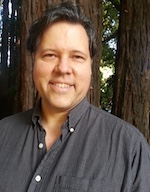 Ted Esser, Ph.D., has been a spiritual counselor and the Director of Operations for the Spiritual Emergence Network since 2004. He is also one of the founders of the International Spiritual Emergence Network and is on the Grof Foundation's Board of Directors. He currently teaches graduate-level Consciousness Studies and Transpersonal Psychology classes at John F. Kennedy University and Sofia University (formerly the Institute of Transpersonal Psychology). He received an MA in Philosophy & Religion from the California Institute of Integral Studies' Philosophy, Cosmology & Consciousness program, and a PhD from their East-West Psychology program (Consciousness Studies track). He recently published as a contributing author in the book Lucid Dreaming: New Perspectives to Consciousness in Sleep. For more information about his work, go to: www.tedesser.com.
Ted Esser, Ph.D., has been a spiritual counselor and the Director of Operations for the Spiritual Emergence Network since 2004. He is also one of the founders of the International Spiritual Emergence Network and is on the Grof Foundation's Board of Directors. He currently teaches graduate-level Consciousness Studies and Transpersonal Psychology classes at John F. Kennedy University and Sofia University (formerly the Institute of Transpersonal Psychology). He received an MA in Philosophy & Religion from the California Institute of Integral Studies' Philosophy, Cosmology & Consciousness program, and a PhD from their East-West Psychology program (Consciousness Studies track). He recently published as a contributing author in the book Lucid Dreaming: New Perspectives to Consciousness in Sleep. For more information about his work, go to: www.tedesser.com.Breakout Session: Ideas for Models of STE Retreats
Panel and Open Discussion, moderated by Ryan Rominger
Panelists
- Bruce & Ruth Davis - Silent Stay Retreat Center, Vacaville, CA
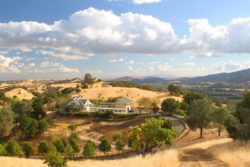
- Bonnie Greenwell - Living with Kundalini at Shanti River Center, Ashland, OR
- Laurie & Gerald Levin - Moonview Sanctuary, Los Angeles, CA
- Marie Grace Brook & Peter Szydlowski - Jasmine Garden Oasis Retreat House, Santa Cruz, CA

- Brack Jeffreys - Center for Spiritual Emergence, Asheville, NC
Breakout Session: Marcie Klevens
The American Shaman’s Journey to Spiritual Emergence Through Contact with Beings From An Unseen World
Abstract
There are many different roads that lead us to spiritual transformation. The road I took was off the beaten path. I will present my own journey of spiritual emergence through lifelong contact with beings that seem to come from non-ordinary reality or the invisible realm that exists around us. I will describe my ontological struggle to grasp what was happening to me, as I was dragged, sometimes screaming, into their realm of the unseen. My story has evolved like a modern shamanic initiation, which facilitated a shift in my consciousness and the way I perceive the world. I have learned how to integrate these two realities to become whole again. It is this journey to wholeness and integration that I believe holds many of the keys to our evolution as a species. My journeys ultimately led me to a spiritual awakening and an opening of consciousness that has given me entry into an unseen world that is teeming with life. Please join me as I discuss my evolution through fear, shock, denial, acceptance and finally integration, which ultimately lead to my spiritual transformation.Presenter Bio
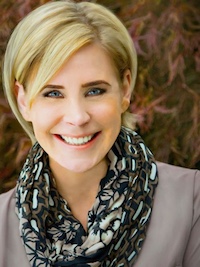 Marcie Klevens, MA, LMHCA, is a psychotherapist in private practice in Seattle, Washington who earned her masters in clinical psychology at Saybrook University. One of her specializations is working with people having paranormal encounters. Marcie believes in the transformative nature of these and many other non-ordinary experiences because she herself is a lifelong “experiencer.” With determination she was able to move through the fear and into empowerment and it is her mission to help others do the same. She has facilitated the Washington State Paranormal/UFO Encounter Support Group for the last three years and believes in the need for community through these life-changing encounters.
Marcie Klevens, MA, LMHCA, is a psychotherapist in private practice in Seattle, Washington who earned her masters in clinical psychology at Saybrook University. One of her specializations is working with people having paranormal encounters. Marcie believes in the transformative nature of these and many other non-ordinary experiences because she herself is a lifelong “experiencer.” With determination she was able to move through the fear and into empowerment and it is her mission to help others do the same. She has facilitated the Washington State Paranormal/UFO Encounter Support Group for the last three years and believes in the need for community through these life-changing encounters.Breakout Session: Nicole Gruel
Exploring STEs And Their Aftereffects Through Jung’s Typology
Abstract
Does psychological type influence how we integrate and make meaning of life-changing STEs? If so, how? This presentation will share preliminary findings from doctoral research that explored these questions. Twenty experiencers were interviewed about how they integrated and made meaning of life-changing STEs, and data was analysed through the lens of Jung’s typology. The immediate and long-term aftereffects of the STEs reveal both positive and challenging aspects in the biological, psychological, social, and spiritual dimensions. The STEs reported are manifold and include kundalini awakenings, near-death experiences, out-of-body experiences, revelation, divine encounters, paranormal experiences, psychedelic experiences, and spiritual crises. Adding a new dimension to existing research is the use of the Gifts Compass Inventory, a newly developed instrument that measures psychological type preferences and allows for nuanced results in keeping with Jung’s original descriptions of typology. Through examples this presentation will share key findings.Presenter Bio
 Nicole Gruel is a life coach, holistic counsellor, NDEr, and descends from a long line of samurai. She is currently completing a PhD in Integral and Transpersonal Psychology at the California Institute of Integral Studies (CIIS). Her books have been featured in leading Australian wellness magazines and have inspired women around the world to take soulful action. She combines experience in teaching, international development, healing arts, Eastern philosophy, depth and transpersonal psychology, sacred ceremony, and creative expression to inspire grounded personal transformation and intentional collective action.
Nicole Gruel is a life coach, holistic counsellor, NDEr, and descends from a long line of samurai. She is currently completing a PhD in Integral and Transpersonal Psychology at the California Institute of Integral Studies (CIIS). Her books have been featured in leading Australian wellness magazines and have inspired women around the world to take soulful action. She combines experience in teaching, international development, healing arts, Eastern philosophy, depth and transpersonal psychology, sacred ceremony, and creative expression to inspire grounded personal transformation and intentional collective action.Breakout Session: Cynthia Husted, PhD
The Biopsychology of Spiritual Emergence
Abstract
My personal journey of transformation began with a black widow spider bite and the resulting near-death experience from a rare response to its venom. Instead of Western medicine, I turned to Tibetan Medicine and a combination of prayer, focused intention and meditation. The dream world opened with lucid dreaming, and the death world opened with visions of others passing. Dreams, meditation and hypnotherapy brought visions of my microscopic body and imbalances that were later confirmed with functional labs and helped save my life. My dreams presaged events in my life and brought spiritual teachings and my primary focus since has been spiritual. I also became board certified in Functional Medicine to assist my physical self, and it helped with the integration of my emotional and spiritual wellbeing. A spiritually transformative experience is defined as a transcendent experience inexplicable by materialist science, that is associated with characteristic changes in knowledge, behavior and personality. From the perspective of Functional Medicine, mental, emotional and spiritual wellbeing are at the center of a matrix of seven interacting physiological systems, and one cannot separate the material world or physical being from one’s emotions and spiritual self. It is the same for Tibetan Medicine; the whole of biopsychology must be addressed. This presentation shares how addressing the physical body when managing a spiritually transformative experience is key to healing, and often a good first step so that the nervous system can better integrate the experience. Personalized approaches in Functional Tibetan Medicine will be discussed with a focus on the roles of epigenetics and the microbiome on neurotransmitters and hormones as they relate to spiritually transformative experiences.Resources
Sign Up for our Newsletter
Assist ACISTE
PLEASE CONSIDER SUPPORTING OUR EFFORTS WITH YOUR GENEROUS DONATION!